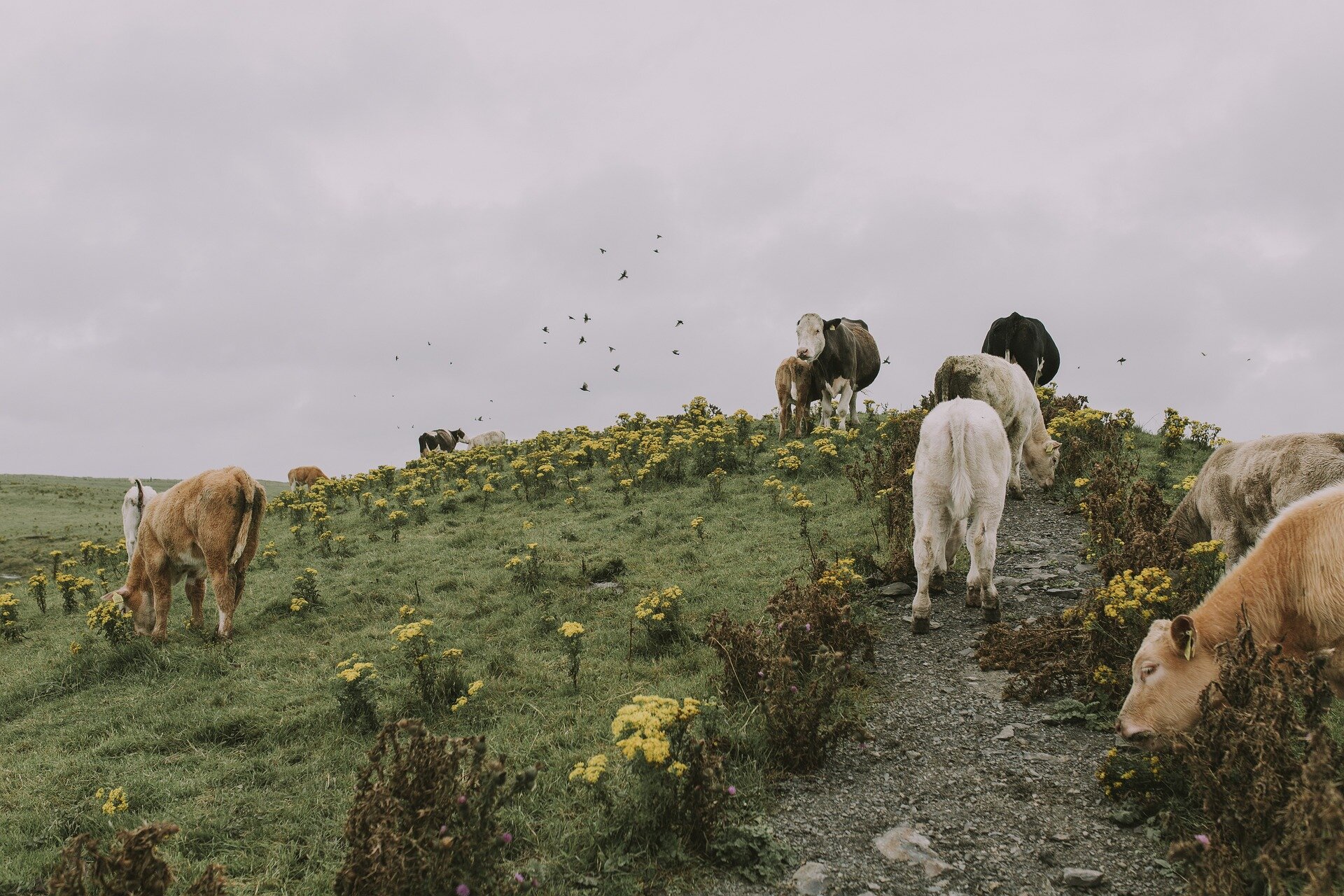Methane (CH4) is the second main greenhouse gas after carbon dioxide (CO2). However, while CO2 will persist in the atmosphere for centuries, methane reacts with other air molecules. The lifetime of methane in the atmosphere is approximately nine years, before it is consumed into CO2. CH4 molecules also have a much stronger warming potential than carbon dioxide: 84 times larger on a 20-year time scale. That’s why reducing methane emissions can have immediate and relatively effective impact on our climate.
The European Union (EU) has recently voted unprecedented measures to reduce our emissions, but what is concerned by this law?
What emits methane?
In Europe, emissions are mainly from agriculture (38% in 2022, JRC 2023), through the digestive system of ruminants. (…)
A significant part (globally 30% in 2017 Saunois et al., 2020) of anthropogenic emissions, meaning from human activities, comes from the fossil fuel industry. (…)
In Europe, the majority of methane emissions caused by the fossil fuel industry is from leaks.
Things are starting to change
In 2020, the European Commission announced the creation of the international methane emissions observatory (IMEO). Then, in November 2023, came a series of measures designed to tackle methane emissions from the fossil fuel industry, as part of the “European Green Deal,” and passed by a majority vote on 10 April 2024.



Would feeding the cows grass instead of corn reduce the methane emissions?
Idk about grass specifically, but generally the answer for most standard cattle feed is no. There are seaweeds that can be added to cow’s food that can help reduce methane emissions, but the most successful approach is to just stop eating cows.
Seaweed is what the World Economic Forum has been proposing for aprox a decade now. Anything not to stop or even cut down industrial meat production.
That’s my understanding, and mainly because more often than not it’s a holistic approach (like regenerative agriculture). But some claim that in an industrial setting this is not the case. The problem, I would argue is not really if they eat grass or corn, but where (see industrialization of meat production). This is the part that needs changing to reduce methane emissions.